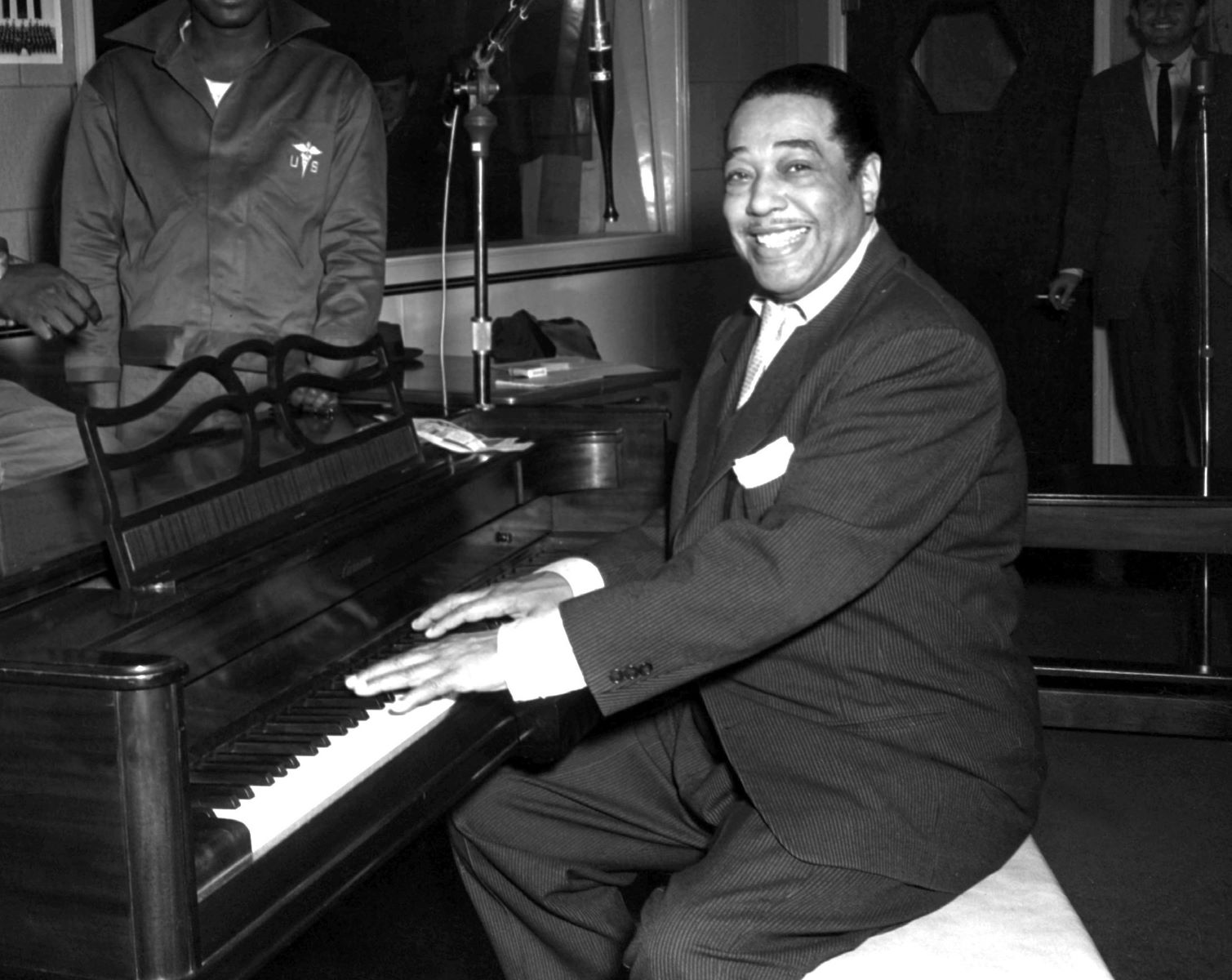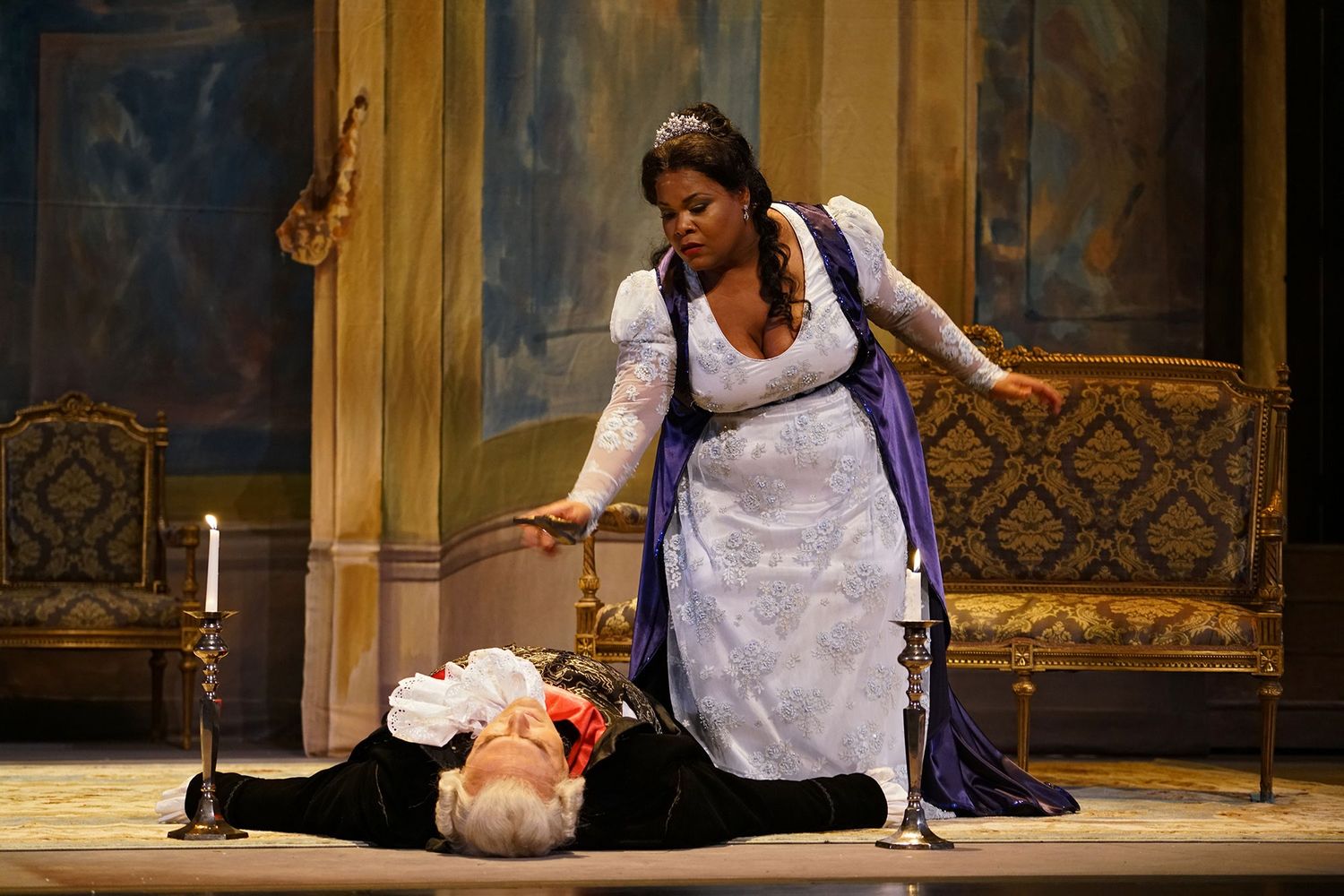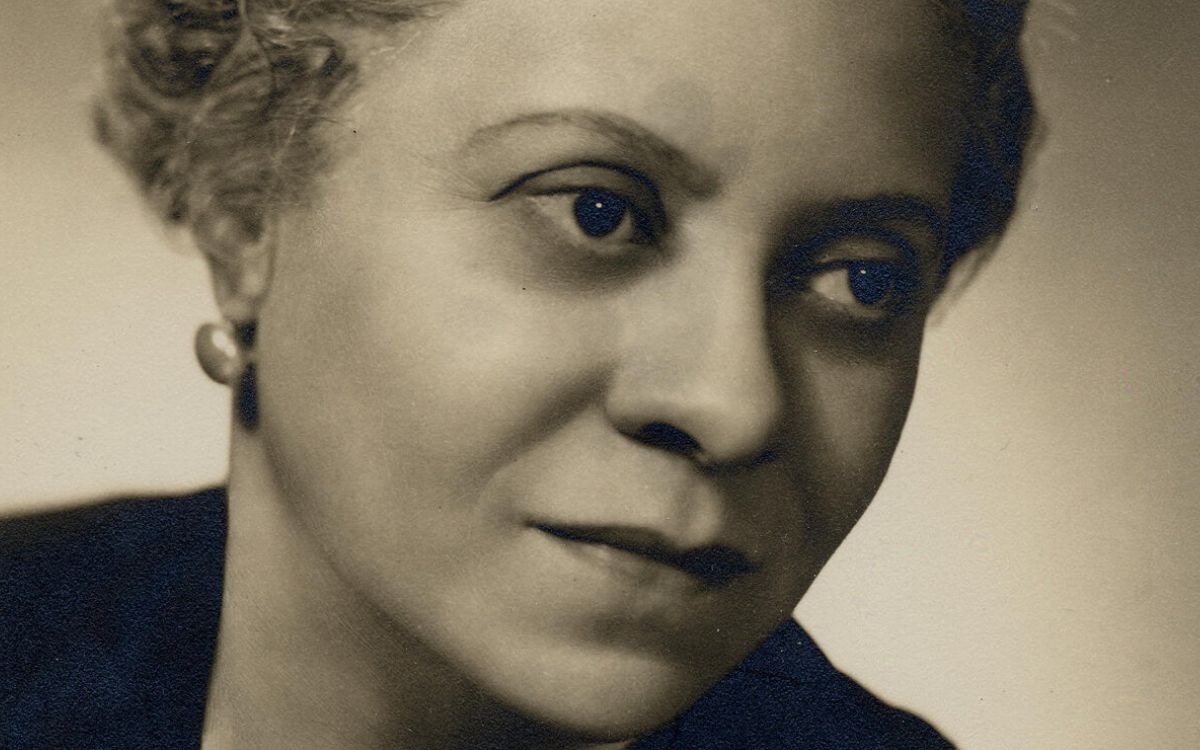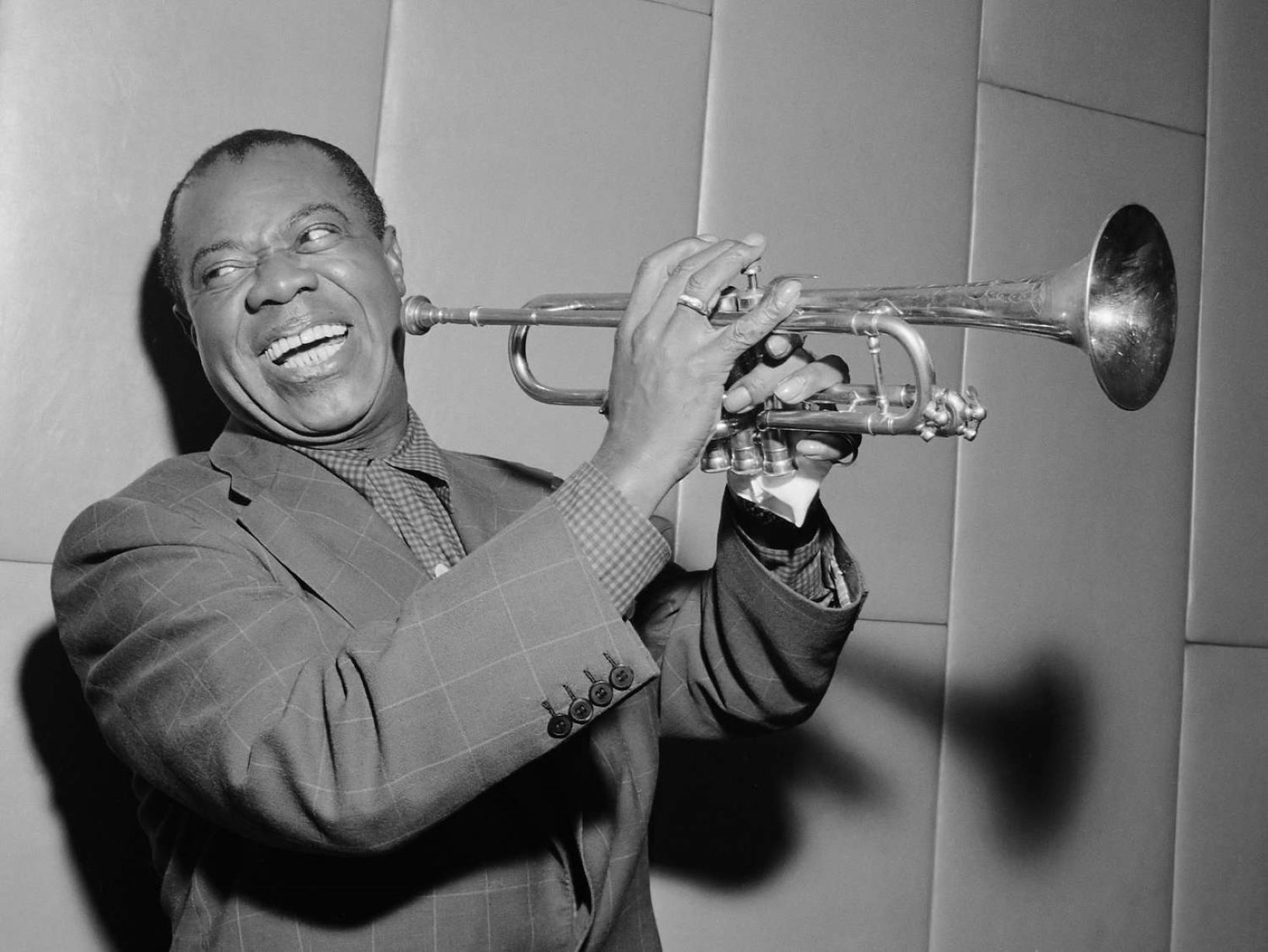Home>Production & Technology>Composer>Name The Composer Who First Popularized The Blues With His Memphis Blues And St. Louis Blues
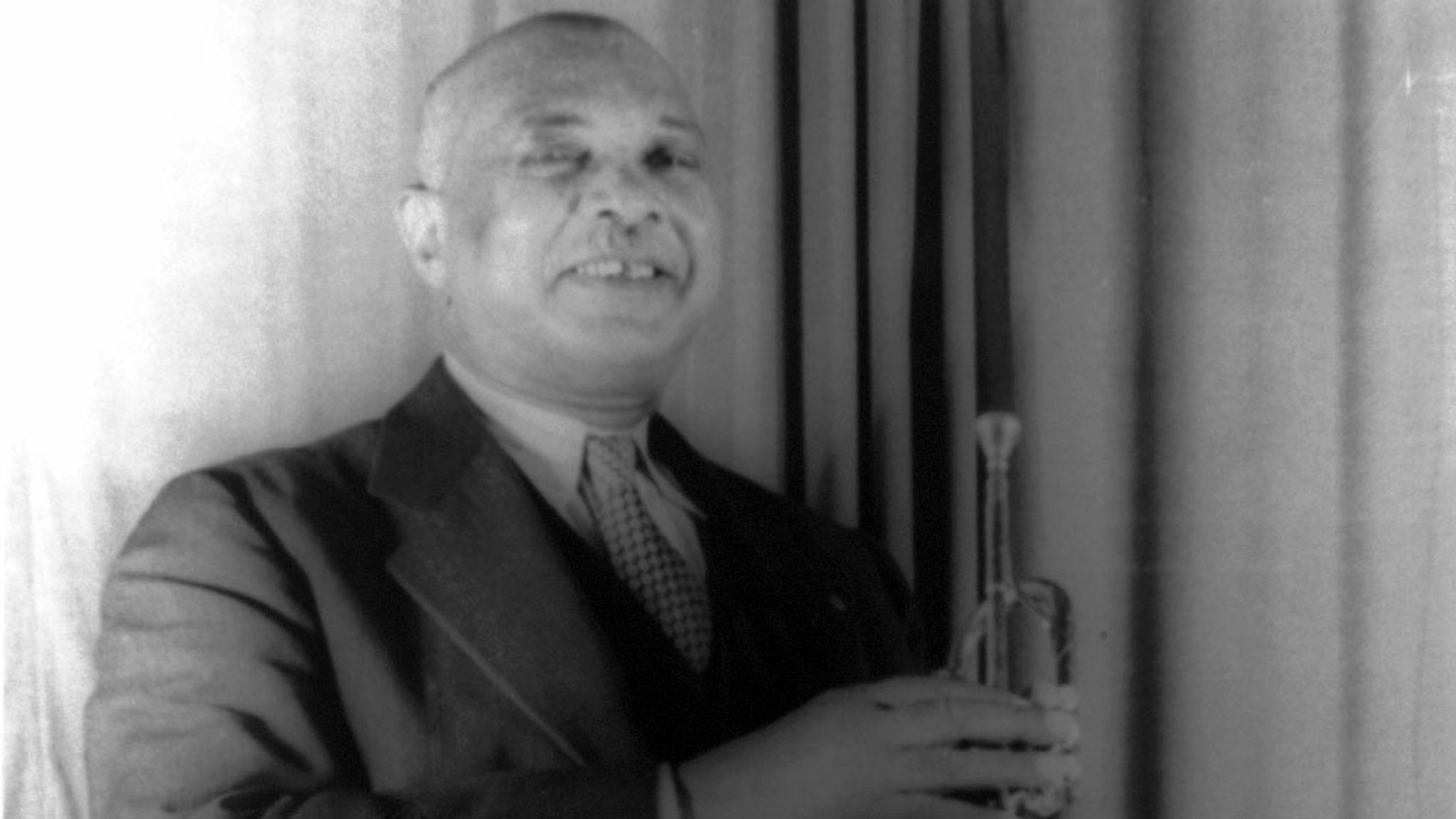

Composer
Name The Composer Who First Popularized The Blues With His Memphis Blues And St. Louis Blues
Modified: February 26, 2024
Discover the influential composer who first popularized the blues with his Memphis Blues and St. Louis Blues.
(Many of the links in this article redirect to a specific reviewed product. Your purchase of these products through affiliate links helps to generate commission for AudioLover.com, at no extra cost. Learn more)
Table of Contents
Introduction
The blues, a genre of music deeply rooted in African-American culture, has captured the hearts and souls of listeners for over a century. The emotional and expressive qualities of the blues have made it a powerful form of musical storytelling, touching on themes of love, loss, and perseverance. While the origins of the blues can be traced back to African musical traditions and work songs in the American South, it was the work of a particular composer that brought the blues into the mainstream.
In this article, we delve into the life and contributions of the composer who first popularized the blues with his iconic compositions “Memphis Blues” and “St. Louis Blues.” We explore the early origins of the blues, the influence of African-American music, and how this composer, often referred to as the Father of the Blues, played a pivotal role in shaping the genre as we know it today.
Through this article, we invite you on a journey through time, to uncover the fascinating story of a composer whose music not only entertained audiences but also served as a cultural touchstone for African-Americans during a time of immense social change.
Early Origins of the Blues
The roots of the blues can be traced back to the deep and rich musical traditions of Africa. Enslaved Africans brought with them a rich musical heritage, characterized by rhythmic patterns, call-and-response singing, and the use of expressive vocal techniques. These musical traditions served as a means of communication, storytelling, and resilience in the face of the hardships of slavery.
As African-Americans endured the oppressive conditions of slavery in the United States, their music evolved and adapted to the harsh reality of their lives. They incorporated elements of European musical traditions, church hymns, and work songs to create a unique blend of music that would eventually become known as the blues.
Contrary to popular belief, the blues did not originate from a single source or individual. Rather, it developed organically over time, through the collective contributions of countless African-American musicians and communities across the Southern United States. The blues emerged in the late 19th century, primarily as a form of oral storytelling, passed down through generations.
These early blues forms often featured simple guitar or banjo accompaniments, with lyrics that reflected the sorrows, joys, and struggles of everyday life. They were performed at gatherings, in juke joints, on plantations, and at churches, serving as a form of self-expression and cultural resistance.
As the blues traveled from rural areas to more urban environments, it began to incorporate new musical elements, such as the piano, brass instruments, and a broader range of influences. This evolution of the blues set the stage for the emergence of a composer who would go on to shape the genre and bring it to a wider audience.
The Influence of African-American Music
African-American music has played a pivotal role in shaping American music as a whole. From spirituals and gospel to ragtime and jazz, the contributions of African-American musicians have been significant and far-reaching. It is within this rich and vibrant musical landscape that the blues found its foundation.
One of the key influences on the development of the blues was the field hollers and work songs sung by enslaved Africans in the Southern United States. These songs were characterized by their improvisational nature, rhythmic patterns, and call-and-response structure. They served as a communal means of self-expression, providing solace and solidarity in the face of adversity.
Another significant influence on the blues was the spirituals, which were religious songs sung by enslaved Africans. These spirituals reflected the deep faith, resilience, and hope of the African-American community. They often incorporated elements of the African musical traditions and laid the foundation for the blues’ emotive and poignant lyrical themes.
As African-Americans moved from rural areas to cities during the Great Migration in the early 20th century, the blues evolved further. It began to intersect with other emerging musical styles, such as ragtime and jazz. The syncopated rhythms and improvisational nature of these genres found their way into the blues, enriching its musical vocabulary.
The blues also drew inspiration from the rich cultural heritage of African-Americans, incorporating elements of folklore, storytelling, and oral traditions. This fusion of influences resulted in a unique and powerful form of music that resonated with audiences on a deeply personal level.
Furthermore, the blues provided a platform for African-American musicians to express their experiences of racism, discrimination, and social inequality. It became a medium through which they could voice their frustrations and assert their humanity. As such, the blues served as both a reflection of African-American culture and a critique of the society that sought to marginalize them.
Overall, the influence of African-American music on the blues cannot be overstated. It is through the rich tapestry of these musical traditions that the blues emerged, carrying with it the spirit, resilience, and creativity of African-Americans throughout history.
W.C. Handy: The Father of the Blues
When it comes to the popularization of the blues, one name stands out above the rest – W.C. Handy. Known as the “Father of the Blues,” Handy was a composer, bandleader, and musicologist who played a pivotal role in bringing the blues to a wider audience.
William Christopher Handy, born on November 16, 1873, in Florence, Alabama, was immersed in music from a young age. His father, a pastor, encouraged him to pursue a career in the church, but Handy had a deep love for music and wanted to share it with the world.
After initially training as a teacher, Handy embarked on a career as a musician, playing cornet in various brass bands and orchestras across the United States. It was during his travels through the Mississippi Delta that he encountered the blues for the first time.
Handy was captivated by the raw and soulful nature of the blues. He recognized its potential as a distinct musical form that could resonate with a broader audience. Inspired by what he heard, Handy set out to compose his own blues songs, adding his unique touch to the genre.
In 1912, Handy achieved a breakthrough with his composition “Memphis Blues.” It was one of the first published blues songs and became an instant hit. “Memphis Blues” showcased Handy’s mastery of blending elements of ragtime and the blues, creating a sound that was both catchy and authentic.
Handy’s success continued with his composition “St. Louis Blues” in 1914. This composition, with its haunting melody and evocative lyrics, solidified Handy’s position as a leading figure in the blues genre. “St. Louis Blues” became a nationwide sensation and remains one of the most iconic blues songs of all time.
Handy’s contributions extended beyond his compositions. He played a significant role in the recording and publishing of blues music, helping to popularize the genre through his own publishing company. His tireless efforts to promote and preserve the blues ensured its continued growth and recognition.
Throughout his career, W.C. Handy’s impact on the blues cannot be overstated. Not only did he compose timeless blues songs, but he also played a crucial role in introducing the genre to a wider audience. His legacy as the “Father of the Blues” remains an enduring testament to his talent, vision, and dedication to preserving African-American musical traditions.
Memphis Blues: The Breakthrough
It was in the year 1912 that W.C. Handy achieved a significant breakthrough with his composition “Memphis Blues.” This seminal composition marked a turning point in the popularization of the blues genre and solidified Handy’s status as a pioneering figure in the world of music.
“Memphis Blues” showcased Handy’s distinctive style, which blended elements of ragtime and the blues. The composition was characterized by its infectious syncopated rhythms, soulful melodies, and expressive lyrics. It captured the essence of the blues, evoking a range of emotions in listeners.
Upon its release, “Memphis Blues” became an instant hit, striking a chord with audiences across the United States. It was one of the first published blues songs, and its success paved the way for the wider acceptance and recognition of the blues as a legitimate art form.
What set “Memphis Blues” apart was its accessibility. While deeply rooted in African-American musical traditions, Handy’s composition had a broader appeal that transcended racial and cultural boundaries. Embraced by both Black and White audiences, the song demonstrated the universal power of the blues to connect and move people.
The success of “Memphis Blues” propelled W.C. Handy into the national spotlight. He toured extensively, performing the song and promoting the genre, bringing the blues to audiences far and wide. Handy’s dynamic stage presence and charismatic performances further endeared him to fans and cemented his reputation as a leading figure in music.
As “Memphis Blues” continued to gain popularity, it also sparked a renewed interest in the broader blues genre. Musicians from various backgrounds began incorporating blues elements into their own work, contributing to the growth and evolution of the genre.
Handy’s groundbreaking composition not only introduced the blues to a wider audience but also influenced the trajectory of American music as a whole. The success of “Memphis Blues” opened doors for other blues artists and composers, paving the way for the blues to become a significant force in popular music.
To this day, “Memphis Blues” remains a pinnacle of the blues genre and a testament to W.C. Handy’s talent and contributions. It stands as a reminder of the power of a single composition to shape the trajectory of an entire musical form and leave a lasting impact on cultural history.
St. Louis Blues: A National Sensation
Following the breakthrough success of “Memphis Blues,” W.C. Handy further solidified his position as a trailblazer in the blues genre with his composition “St. Louis Blues.” Released in 1914, this iconic composition became a national sensation, cementing Handy’s status as a key figure in American music.
“St. Louis Blues” showcased Handy’s ability to weave together elements of the blues, ragtime, and jazz, creating a harmonious and captivating composition. The haunting melody, coupled with the heartfelt lyrics, evoked a deep sense of longing and melancholy that resonated with audiences across the country.
What set “St. Louis Blues” apart was its ability to transcend genre boundaries. While firmly rooted in the blues tradition, its sophisticated musical arrangements and complex harmonies appealed to a wide range of listeners. The composition’s popularity extended beyond the African-American community, capturing the attention of mainstream audiences.
Part of the song’s success can be attributed to the impeccable timing of its release. “St. Louis Blues” emerged during the height of the ragtime and jazz eras, when audiences were craving innovative and evocative music. Handy’s composition satisfied that desire, providing a fresh and unique blend of musical styles.
The impact of “St. Louis Blues” was felt not only through its commercial success but also through its influence on other musicians. Countless artists were inspired by Handy’s innovative composition, and they began incorporating blues elements into their own work, further expanding the reach and influence of the genre.
The composition’s popularity also led to an increased recognition of W.C. Handy’s contributions to the blues. He was hailed as a master songwriter and composer, and his work became synonymous with the genre itself. Handy’s ability to capture the essence of the blues while infusing it with his unique musical style set him apart as a true pioneer in the field.
Over the years, “St. Louis Blues” has been reinterpreted and recorded by numerous artists, solidifying its status as a timeless classic. Its impact on American music cannot be overstated, as it helped to shape the course of popular music in the early 20th century and beyond.
To this day, “St. Louis Blues” remains a quintessential blues composition, revered for its emotional depth and musical sophistication. It stands as a testament to W.C. Handy’s artistic genius and his lasting legacy as a composer who helped bring the blues from its origins to a national stage.
Legacy and Impact of W.C. Handy
The legacy of W.C. Handy, known as the “Father of the Blues,” continues to reverberate throughout the history of music. Through his compositions, performances, and advocacy, Handy played a crucial role in popularizing and shaping the blues genre, leaving an indelible mark on American music.
Handy’s contributions to the blues extended beyond his iconic compositions, such as “Memphis Blues” and “St. Louis Blues.” He helped to establish the blues as a legitimate art form, elevating it from its humble origins into the realm of mainstream music.
One of Handy’s lasting legacies is his role in the preservation and promotion of the blues. He recognized the importance of documenting and recording this unique musical form, ensuring that future generations would have access to its rich history and expressive power.
In addition to his compositions, Handy’s work as a bandleader and musicologist brought further recognition to the blues genre. He formed his own band, the W.C. Handy Orchestra, which performed his compositions and introduced audiences to the blues in a live setting.
Handy’s influence extended beyond his own performances. His publishing company, Handy Brothers Music Co., was instrumental in disseminating blues sheet music and making it widely available to musicians and audiences across the country. This helped to popularize the blues and expose it to a broader audience.
Moreover, Handy’s impact on other musicians cannot be overstated. Artists and composers were inspired by his innovative blend of ragtime, jazz, and the blues, incorporating elements of his musical style into their own work. His influence can be heard in the music of numerous artists who followed in his footsteps.
Handy’s contributions to the blues genre also paved the way for future generations of African-American musicians. He challenged prevailing racial stereotypes and demonstrated the artistic excellence of African-American music, proving that it deserved recognition and respect.
Furthermore, Handy’s legacy as the “Father of the Blues” helped to establish the blues as an important form of musical expression. It influenced the development of other genres such as jazz, rock ‘n’ roll, and R&B, which drew inspiration from the blues’ emotive qualities and improvisational nature.
Today, W.C. Handy’s impact on American music is celebrated and acknowledged. His compositions continue to be performed and revered, and his pioneering efforts in elevating the blues to a national stage have left an enduring mark on the history of music.
In recognition of his contributions, W.C. Handy was inducted into the Songwriters Hall of Fame and received numerous honors and accolades throughout his career and posthumously. His lasting legacy as the “Father of the Blues” serves as a testament to his talent, innovation, and dedication to preserving and popularizing this influential genre.
Conclusion
The blues is a genre of music that has transcended time and boundaries, touching the hearts of millions with its emotional depth and raw authenticity. Within the rich tapestry of the blues, one composer stands out as a pioneering figure who brought this genre into the mainstream – W.C. Handy, the “Father of the Blues.”
Through his iconic compositions like “Memphis Blues” and “St. Louis Blues,” Handy not only popularized the blues but also elevated it as an art form. His unique blend of ragtime, jazz, and the blues created a distinct sound that captured the essence of the genre and mesmerized audiences.
Handy’s impact on the blues extended far beyond his compositions. He played a crucial role in preserving and promoting the blues, both through his performances and his work as a musicologist. His efforts helped to ensure the longevity of this powerful and deeply rooted musical tradition.
Furthermore, Handy’s influence on other musicians and the broader American music landscape cannot be overstated. His innovative compositions and distinct musical style inspired countless artists to explore and incorporate blues elements into their own work, shaping the trajectory of music across genres.
Handy’s legacy as the “Father of the Blues” is a testament to his talent, vision, and dedication. His pioneering efforts brought the blues from its origins in African-American communities to a national stage, allowing audiences from all walks of life to connect with the heartfelt expressions and universal stories of the blues.
Today, we continue to appreciate and celebrate the enduring legacy of W.C. Handy. His contributions to the blues genre and American music as a whole have left an indelible mark, influencing generations of musicians and enriching the cultural tapestry of our society.
As we listen to the haunting melodies and soul-stirring lyrics of Handy’s blues compositions, we are reminded of the resilience, creativity, and profound humanity that defines the blues. Through the legacy of W.C. Handy, the blues will continue to captivate and move audiences for generations to come.

